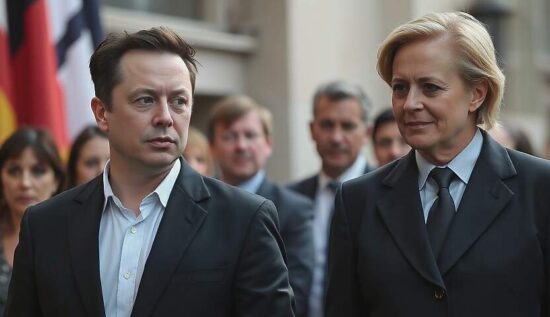Elon Musk’s Endorsement of AfD Sparks Outrage in Germany
Elon Musk, the world’s richest man, has sparked outrage in Germany by endorsing the far-right Alternative for Germany (AfD) party on his social media platform X and in a guest article in the German newspaper Die Welt am Sonntag. The AfD’s chancellor candidate, Alice Weidel, was interviewed by Musk on January 9, 2025, and he recommended the party to the German people, stating that “only the AfD can save Germany.”
Musk’s actions have been widely condemned by German politicians and the public, with many calling for an investigation into whether his endorsement constitutes an illegal interference in the German election.
CDU leader Friedrich Merz described Musk’s statements as “overbearing and presumptuous” saying that he couldn’t remember a similar case of interference in a western democracy’s election.
SPD leaders Lars Klingbeil and Saskia Esken compared Musk to Vladimir Putin, stating that both are trying to influence German elections and support the AfD, a party that is critical of democracy. Esken also criticized Musk’s attacks on German politicians, calling them “niveaulose” and “a borderless transgression of respect for our democracy.”
Critics of Musk’s actions have been quick to point out that he is not the only one to interfere in German politics, citing the influence of US investors like Bill Gates and George Soros in the country.
In response to the controversy, German Chancellor Olaf Scholz and Bundestag Vice President Wolfgang Kubicki have called for calm, with Scholz stating that freedom of opinion also applies to billionaires and Kubicki saying that the Tesla drivers in Germany will not be influenced in their voting decisions by Musk’s endorsement.
It is worth noting that the AfD is a legally recognized party in Germany, and as such, it is protected by the country’s constitution, including the right to free speech and assembly.
The controversy surrounding Musk’s endorsement has led to a wider discussion about the role of social media in politics and the need for greater regulation of online platforms to prevent the spread of misinformation and hate speech.





